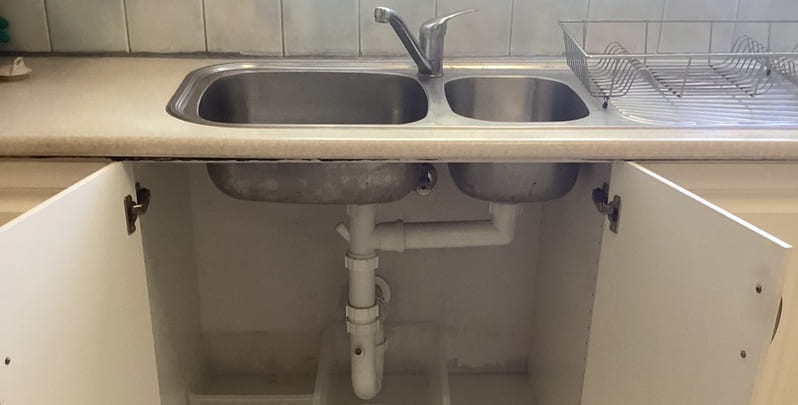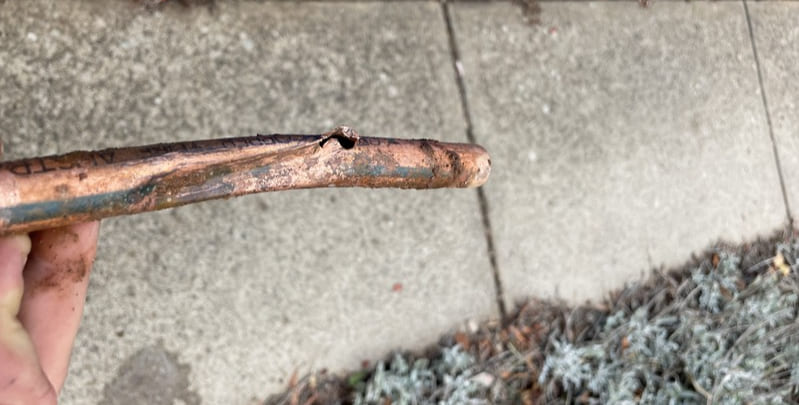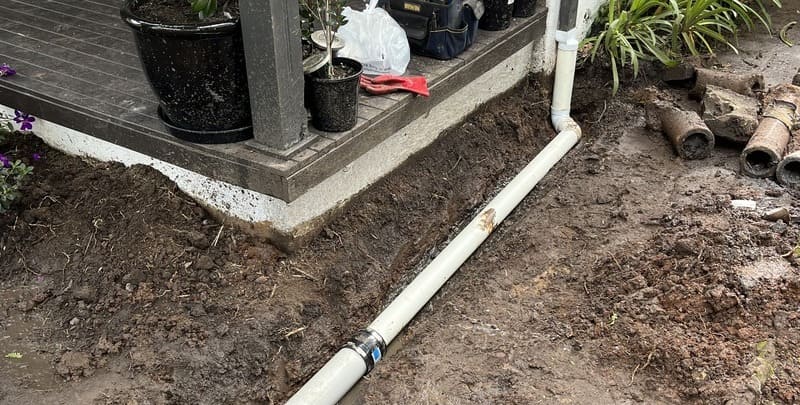
The Lowdown on Leaking Pipe Detection and Repair
Found yourself with a leaking pipe in your home? Not only is it more than just a minor inconvenience – it can be a significant drain on your finances, and a potential hazard to your property.
If you don’t address it quickly, a water leak in your pipes is capable of triggering major water damage. It can also significantly increase your water bills, and even create serious health problems due to mould growth. But don’t panic just yet!
We’re here to provide you with the knowledge and confidence you need to identify the cause of your leaking pipe, and what you need to do to effectively stem the flow until the plumber arrives. In doing so, you’ll be able to protect your home, save money, and safeguard your peace of mind.
The Tell-tale Signs of Pipe Leaks
Should you suspect that you have a leaking pipe in your house, many common indicators might confirm your suspicions. They include:
- Higher than normal water bills: One of the first tell-tale signs is an abrupt spike in your water bill. You might not be actively using more of your water supply than normal. But once it leaves the pipes – no matter how that might be – you’re paying for it.
- Mould or damp patches inside the home: Unusual damp patches or mould growth on walls, ceilings or floors can suggest you’re dealing with a leaky pipe.
- Unpleasant odour: A constant musty smell or damp odours in and around your house can be a tell-tale sign of a hidden leak.
- Unusual patches of growth in the garden: If you find patches of the garden that seem to be growing more successfully than others, it could indicate that a pipe underground has sprung a leak that needs immediate attention.
If you’ve noticed any of these signs, it’s time to roll up your sleeves and determine whether you’re dealing with the dreaded leaking pipe.

DIY Detection Techniques
With some patience and finely-tuned powers of observation, you can detect water leaks without professional assistance. Here’s how:
- Visual inspection: Be on the lookout for visible indicators of water damage. These might include paintwork that has become stained or is bubbling, warped wood, and discoloured walls or ceilings.
- Listen for drips: If you live in a quiet house, keep an ear out for the sound of dripping water. This can lead you directly to the source of the leak.
- Test the water meter: Check your water meter and record the figures as they are. Hold off from using any water for a couple of hours, and then recheck the meter. If there is a change in what you read, you may have a leak.
Unsure how to read your water meter? SA Water’s helpful guide is worth checking out.
Why You Need a Plumber to Repair Leaking Pipes
Once you’ve detected a leaky pipe, the next essential step is to repair it. Exactly how you go about that depends largely on factors like the type and location of the pipe and the seriousness of the pipe leak itself.
For minor leaks, a do-it-yourself approach might be sufficient, and we’ll look at some simple methods below. However, more serious leaks will undoubtedly need the expertise of a licensed, professional plumber.
Here in Australia, you need to be licensed to carry out most major plumbing installation, maintenance and repair tasks. Doing so without the appropriate licence is against the law. Minor jobs like changing a showerhead, or replacing a washer to fix a leaking tap, are OK. But for any major work more intensive than that, including altering or extending pipework, you will need a licensed plumber.
Temporary DIY Repair Techniques For Small Leaks
Here are a few techniques for repairing a minor leaking pipe, whether under the sink or attached to your hot water system:
- Epoxy paste: Suitable for smaller leaks, epoxy paste can be applied directly to the leaking pipe.
- Rubber and hose clamps: This is a temporary fix where a piece of rubber is placed over the leak, and then secured with a hose clamp.
- Pipe clamps: These are often used on more significant leaks in straight sections of pipe. In this situation, it may see you through until a plumber arrives at your doorstep.
Remember, these are temporary fixes and might not resolve the root cause of the problem. If you’re dealing with a serious leak or you’re unsure about the repair, you will need a licensed plumber. It is against the law to do any extensions or alterations to your pipework if you are not licensed to do so.
Prevention Of Burst Pipes is Better Than Cure
While it’s essential to know how to identify and fix a leaking pipe, even more critical is knowing how to prevent leaks from occurring in the first place.
Taking the “prevention is better than cure” approach can save you a lot of unnecessary and expensive repairs in the long run. Maintaining a consistent servicing schedule is vital in spotting early signs of wear and tear. It also reduces the chances of leaks and cracks developing.
On top of this, insulating your pipes properly during Australia’s cooler winter months will drastically minimise the likelihood of them freezing and bursting.
Finally, you can avoid unnecessary blockages or pipe damage by avoiding flushing hard or non-degradable items. Do right by your water pipes and plumbing systems, and they will do right by you. All these steps will contribute significantly towards the longevity and health of your home’s plumbing system, giving you peace of mind.
Don’t Ignore the Outdoors
Though indoor leaking pipes are quite capable of causing significant water damage, don’t ignore the possibility of leaks springing from your outdoor plumbing. These can lead to landscape erosion, foundational and structural damage, and excessively higher water bills.
Keep an eye out for wet spots in your lawn, puddles around your hose connections or taps, and diminished water pressure in your outdoor fixtures.

Sort Out That Leaky Pipe Situation Today
Dealing with a leaking pipe doesn’t need to be stressful. By doing the following:
- Keeping alert and observant for hidden leaks
- Regularly monitoring your property for indicators of leaks, and
- Dealing with minor issues before they dramatically escalate
You can safeguard your property, save money, and keep stress at bay. It’s about becoming more proactive and less reactive when it comes to maintaining your home.
But remember – when in doubt, or when the leakage requires major plumbing work, always consult a licensed professional. The slight cost of hiring an expert can save you substantial amounts in potential damage. So, let’s keep our homes dry and our spirits high!
Please note: This information is provided for advice purposes only. Regulations differ from state to state, so please consult your local authorities or an industry professional before proceeding with any work. See our Terms & Conditions here.
Published: 2023-06-23

















